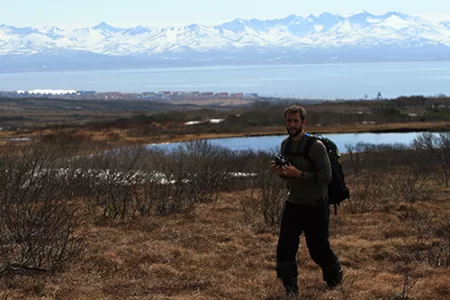ANNAPOLIS, Md – Cooperation is a fundamental dilemma of social life. Although we can accomplish more by working together, conflict often arises between our individual interests and the common good. Social scientists have long viewed cooperation through the lens of rational self-interest, focusing on cost/benefit calculations and other structural dimensions of cooperative dilemmas. However, a growing number of scholars are beginning to explore the role of context—the ways cultural norms, values, and institutions shape individual choices and common outcomes. In order to improve our ability to identify solutions to cooperative dilemmas, we need to understand how cold calculations and cultural contexts interact, rather than holding rationality and culture as opposing explanations.
In this issue of Current Anthropology, Dr. Drew Gerkey explores this interaction among indigenous salmon fishers and reindeer herders living on the Kamchatka peninsula in Northeastern Siberia. He synthesizes long-term ethnographic research on cooperation in Kamchatka with an experiment called the “public goods game.” The game places people in a cooperative dilemma, where decisions carry costs and benefits with outcomes converted into hard currency. Dr. Gerkey found levels of cooperation in the game that are dramatically higher than other parts of the world. This striking result reflects the longstanding importance of cooperation in Kamchatka, echoed in the vivid connections people made between the game and their everyday lives. Dr. Gerkey explored these connections further by including games “framed” to refer to post-Soviet collectives, which play an important role in coordinating fishing and herding. Framing the game changed the relationship between people’s actions and their expectations, leading them to adopt strategies of conditional cooperation. Such strategies are common in institutions that coordinate natural resource use, support social movements, or sustain other forms collective action throughout the world. By using frames and economic games to understand cooperation in context, Dr. Gerkey’s research improves our understanding of the ways cultural norms, values, and institutions shape expectations and frame cost/benefit calculations.
Click here for article PDF.


